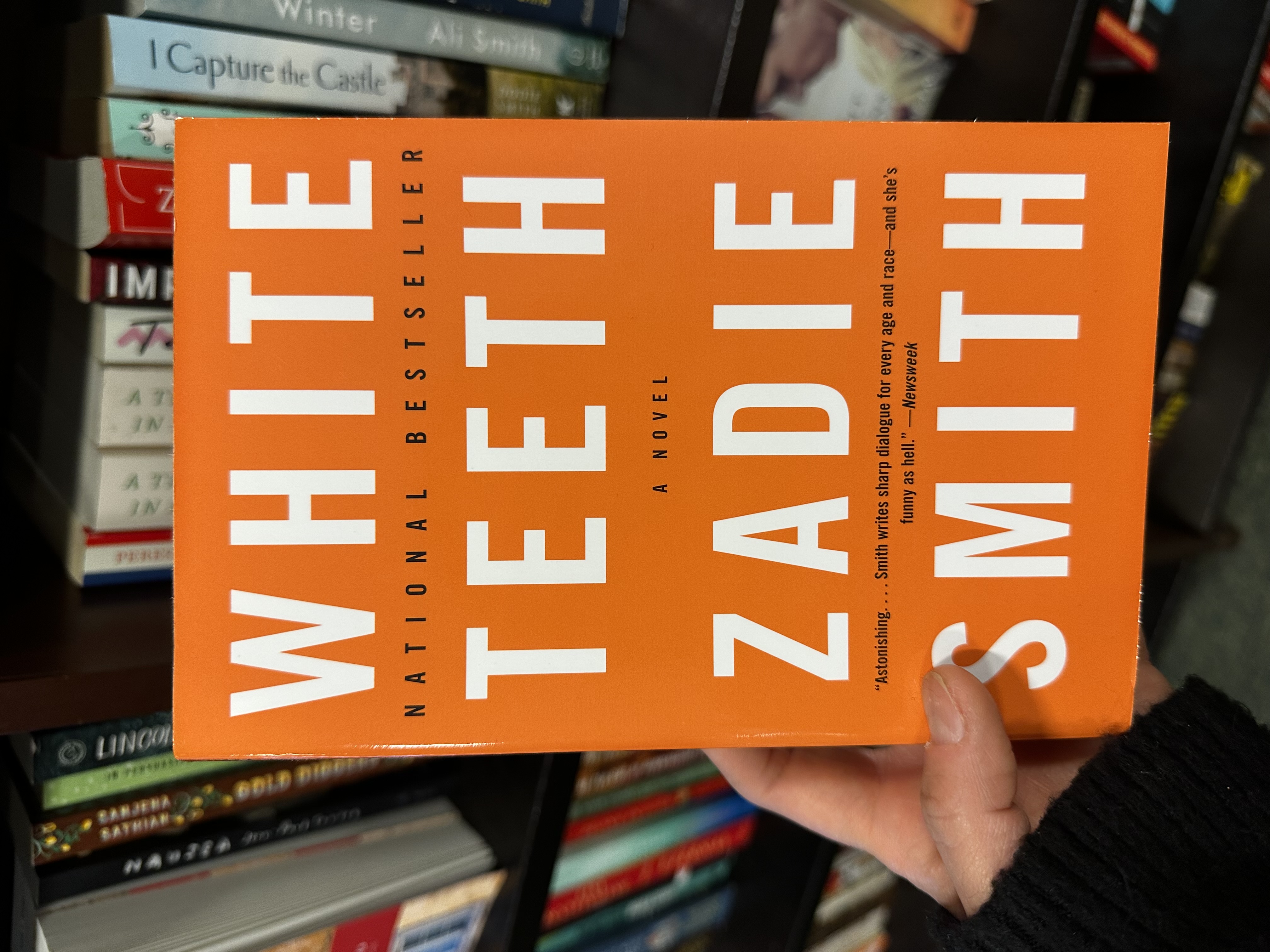White Teeth: Is It Still Culturally Relevant?
Let us begin with White Teeth, a novel so impressive that some said it was a fluke. Twenty three years later, in an interview, Smith acknowledges that she is not the same girl who wrote White Teeth. Since the publishing of the novel the world has changed. Cultural and political atmospheres all around the world have shifted. Major events like 9/11, the war in Iraq and Afghanistan, BRITAX, Trump, and a pandemic, countless protests and an insurrection have transformed the world. People are navigating through minefields of political correctness and apologizing as they do it.
With all that has happened since the book was first published, beginning with the theme of culture helps answer the question, is Smith’s culturally charged novel still relevant?
Taking a closer look at the novel and the author might help answer that question. White Teeth has a multicultural crew of characters who are not always likable. Archie Jones tries to kill himself without even half trying at life. Clara Bowden after one failed attempt at rebellion settles her life by marrying Archie. Samad Iqbal, a Bengali Muslim is another character who struggles with fidelity. His unlikable and lackluster efforts to produce excitement in his life are sometimes frustrating. Smith’s characters are not defiant, not fantastical or heroic. Most of them are disconnected from their families resulting in family histories that may at first seem far and foreign to the reader.
While most authors write characters that are universal, Smiths steers from the universality of existing archetypes. While the universality of the archetype is comforting, recognizable and vital to storytelling readers are always looking for something new and fresh. Smith’s understanding of this need is clear in her characterizations of refugees and immigrants living in London. Similar to their counterparts in real life the characters in White Teeth offer a level of cultural authenticity few characters do in the western literary canon. They may not be very exciting or adventurous but they are genuine and accessible and that makes her characterization of culture timeless.
Now that we have established why her culture characterizations are timeless, it leads us to wonder how? How does she create these complex and nuanced characters? Most authors have tried and failed. There are countless stereotypical Asian, Middle Eastern, Jamaican characters who come off as caricatures in someone else’s main story. Smith’s work does not dismiss or stereotype. She does not destabilize the readers by ignoring their need for artistic representation and well crafted characterizations of their cultures. In fact her super power is characterization.
In Fascinated to Presume: In Defense of Fiction, an essay for The New Yorker Review author Zadie Smith gives readers some insight about her cultural curiosities and how her work is possible,
“The Pakistani girl next door happened to be painting mehndi on my hands—she liked to use me for practice—it was the work of a moment to imagine I was her sister. I’d envision living with Asma, and knowing and feeling the things she knew and felt. To tell the truth, I rarely entered a friend’s home without wondering what it might be like to never leave. That is, what it would be like to be Polish or Ghanaian or Irish or Bengali, to be richer or poorer, to say these prayers or hold those politics. I was an equal-opportunity voyeur. I wanted to know what it was like to be everybody. Above all, I wondered what it would be like to believe the sorts of things I didn’t believe. ”
The author’s cultural voyeurism makes her well suited for writing, it also showcases her humility. Characters come to the reader with mixed feelings about their traditions, showing up on the page displaced from their histories and uncertain about their futures. Characters like Clara, Alsana and Irie are stunning examples from the novel that illustrate the author’s ability to portray the Other and make them more familiar to her readers. It seems like no matter how hard we try to expel stereotypes and racism from our cultures, it doesn’t work, or at least it doesn’t last very long. Zadie Smith gives marginalized communities a chance, a chance to be seen and heard without judgment. Smith’s story is still relevant because it continues to help us come together through a shared love for language and culture.

